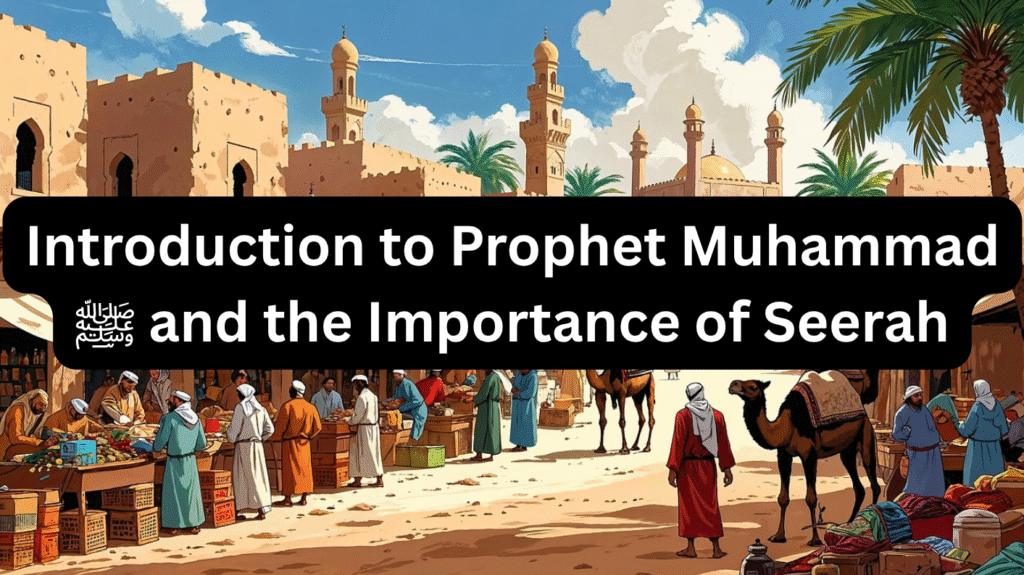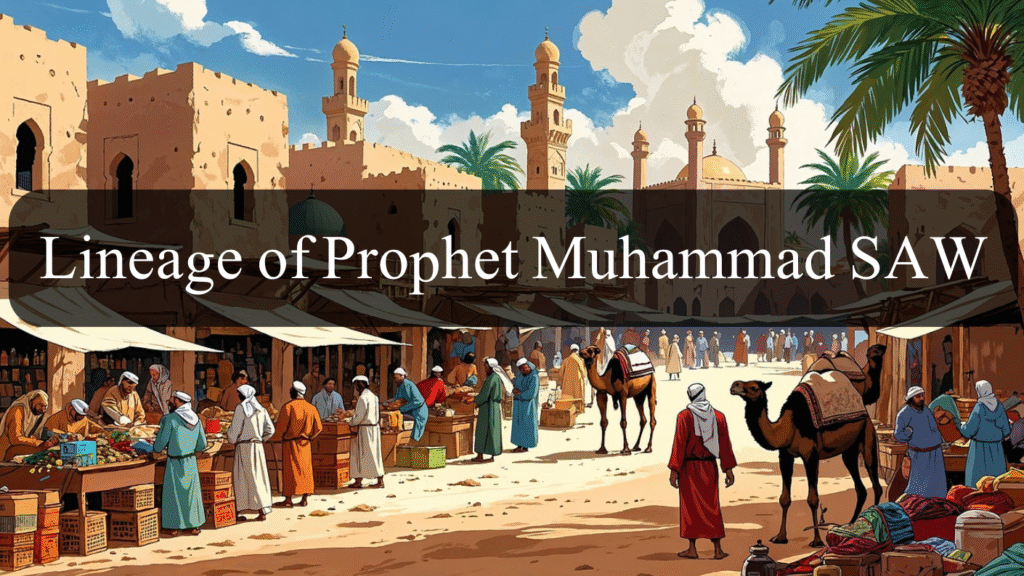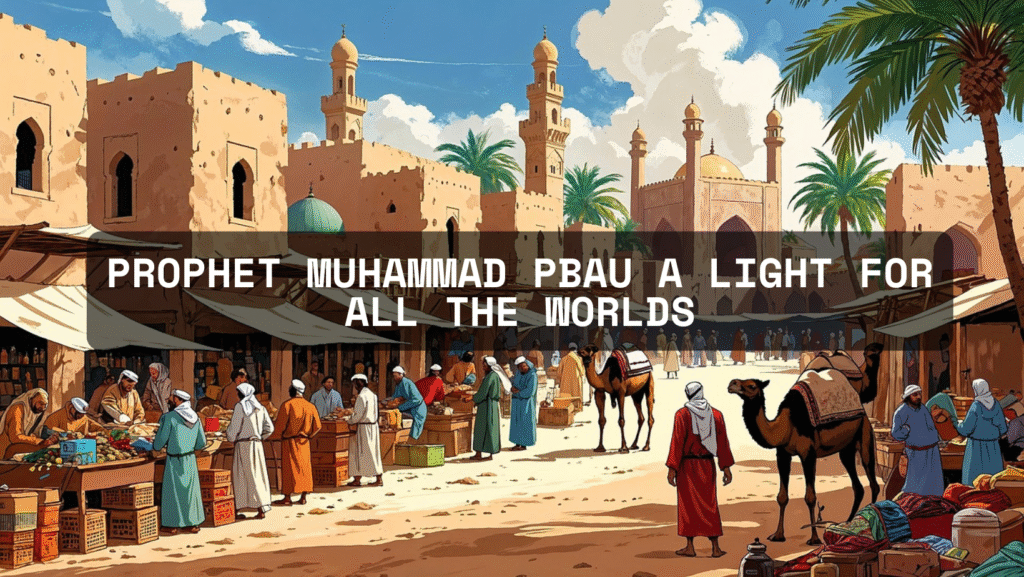Islam Religion Text: Opposition of the Quraysh
After the declaration of Prophethood, the Messenger of Allah (PBUH) faced fierce opposition, insults, and both physical and mental torture from the Quraysh of Makkah. His message of monotheism, justice, equality, and rejection of idol worship challenged the very core of their social and religious systems. The tribal chiefs feared the collapse of their inherited religion and commercial interests. This period highlights how the Islam religion text faced suppression from its earliest days.
Initial Reaction of the Quraysh
Initially, the Quraysh leaders ignored the Prophet (PBUH) and did not take his message seriously. But as Islam began to spread among different segments of Makkah—especially the slaves, youth, and oppressed—the Quraysh’s pride and vested interests were shaken.
The Qur’an describes their reaction:
“And they say: This is a magician, a liar. Has he made all the gods into one God? Indeed, this is a strange thing.” (Surah Sad, 38:4–5)
Forms of Insult and Harassment
1. Verbal Abuse
• (Adh-Dhariyat: 39, At-Tur: 29) The Prophet (PBUH) was called “madman,” “sorcerer,” “soothsayer,” and “poet.”
• (Surah Al-Anfal: 31) The Qur’an was dismissed as “tales of the ancients.”
• (Fussilat: 26) The disbelievers said: “Do not listen to this Qur’an and make noise during its recitation.”
2. Social Boycott
• The Prophet (PBUH) and his followers were cut off from tribal and family ties.
• They faced economic, trade, and marital bans. (Seerah Ibn Hisham, Vol 1, p. 375)
3. Physical Persecution
• Camel intestines were thrown on the Prophet (PBUH) while he prayed. (Sahih Bukhari, Hadith 240)
• Thorns were placed in his path, and filth was thrown at him.
• When Abu Bakr (RA) tried to defend the Prophet (PBUH), he was beaten until unconscious. (Al-Bidaya wa’l-Nihaya, Vol 3, p. 29)
Role of Abu Lahab, Abu Jahl, and Other Leaders
Abu Lahab
• Though the Prophet’s (PBUH) uncle, he was a fierce enemy of Islam.
• He was condemned in the Qur’an:
“Perish the hands of Abu Lahab…” (Surah Al-Masad: 1)
• His wife, Umm Jamil, used to scatter thorns in the Prophet’s path. (Tafsir Ibn Kathir)
Abu Jahl
• The most arrogant leader of Quraysh who plotted the Prophet’s (PBUH) death repeatedly.
• He was killed in the Battle of Badr. (Seerah Ibn Hisham, Vol 2, p. 230)
Other Enemies
• Walid ibn al-Mughirah: Called the Qur’an magic. (Surah Al-Muddathir: 24–25)
• ‘As ibn Wa’il and ‘Uqbah ibn Abi Mu’ayt: Mocked the Prophet (PBUH) and spat on him. (Dala’il an-Nubuwwah, Al-Bayhaqi, Vol 2, p. 191)
Temptations Offered to the Prophet (PBUH)
The Quraysh offered the Prophet (PBUH) worldly temptations to abandon his mission:
• Leadership of Makkah
• Wealth and gold
• Medical treatment for his “condition”
The Prophet (PBUH) replied:
“If they place the sun in my right hand and the moon in my left, I will never abandon the message of Allah.” (Seerah Ibn Hisham, Vol 1, p. 293)
Persecution of the Companions (RA)
• Bilal al-Habashi (RA) was laid on burning sand with stones on his chest. (Al-Isabah, Vol 1, p. 169)
• Yasir (RA) and Sumayyah (RA) were martyred — Sumayyah being the first female martyr in Islam. (Al-Isti’ab, Vol 4, p. 1806)
• Khabbab ibn al-Aratt (RA) was burned with hot coals. (Sahih Bukhari, Hadith 3855)
The Prophet’s (PBUH) Response: Patience, Prayer, and Wisdom
The Prophet (PBUH) never retaliated with violence. Instead, he showed unmatched patience, noble character, and sincere prayers.
He once said:
“O Allah! Guide my people, for they do not know.” (Sahih Muslim, Hadith 1792)
Results and Impact
The more the Quraysh resisted, the faster Islam spread. It gave hope to the weak and the oppressed. The Prophet’s (PBUH) truthfulness, character, and resilience won hearts across Makkah. This marked a pivotal phase in the survival and growth of the Islam religion text despite enormous opposition.
The Qur’an affirms:
“And We have not sent you, [O Muhammad], except as a mercy to the worlds.” (Surah Al-Anbiya: 107)
References
• Sahih Bukhari: Hadiths 240, 3855
• Sahih Muslim: Hadith 1792
• Seerah Ibn Hisham: Volumes 1 & 2
• Al-Bidaya wa’l-Nihaya: Ibn Kathir, Vol 3
• Dala’il an-Nubuwwah: Al-Bayhaqi, Vol 2
• Al-Isabah: Ibn Hajar
• Al-Isti’ab: Ibn ‘Abd al-Barr
• Tafsir Ibn Kathir
• The Holy Qur’an: Surah Sad, Al-Anfal, Fussilat, Al-Masad, Al-Muddathir, Al-Anbiya
Conclusion
The opposition from Quraysh was not trivial or momentary—it was an organized, harsh campaign aimed at silencing the call to Islam. Yet, the Prophet (PBUH) responded with unparalleled patience, mercy, and determination.
His example teaches us that facing trials for truth is part of the divine mission, and perseverance leads to victory. His Seerah remains the ultimate guide for all who face resistance on the path of righteousness, especially in preserving and spreading the Islam religion text.




